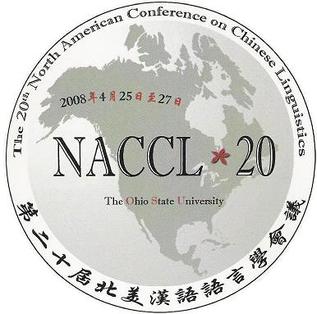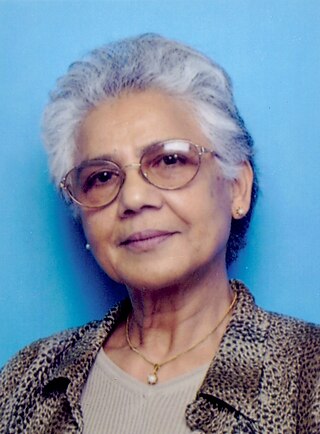Dell Hathaway Hymes was a linguist, sociolinguist, anthropologist, and folklorist who established disciplinary foundations for the comparative, ethnographic study of language use. His research focused upon the languages of the Pacific Northwest. He was one of the first to call the fourth subfield of anthropology "linguistic anthropology" instead of "anthropological linguistics". The terminological shift draws attention to the field's grounding in anthropology rather than in what, by that time, had already become an autonomous discipline (linguistics). In 1972 Hymes founded the journal Language in Society and served as its editor for 22 years.
William Labov is an American linguist widely regarded as the founder of the discipline of variationist sociolinguistics. He has been described as "an enormously original and influential figure who has created much of the methodology" of sociolinguistics.
Gregory Riordan Guy is a linguist who specializes in the study of language variation and language diversity, including sociolinguistics, historical linguistics, phonetics, and phonology. He has a particular interest in the Brazilian Portuguese and Spanish languages.
Variation is a characteristic of language: there is more than one way of saying the same thing in a given language. Variation can exist in domains such as pronunciation, lexicon, grammar, and other features. Different communities or individuals speaking the same language may differ from each other in their choices of which of the available linguistic features to use, and the same speaker may make different choices on different occasions.
Scott Fabius Kiesling is a professor in the Department of Linguistics at the University of Pittsburgh. With the completion of his dissertation, Language, Gender, and Power in Fraternity of Young Men's Discourse, Kiesling received a PhD in linguistics in 1996 from Georgetown University, where he previously completed an M.S. in linguistics. He also received a B.A. in linguistics from the University of Pennsylvania in 1989. Kiesling has held previous academic positions at the University of Sydney and The Ohio State University.

The North American Conference on Chinese Linguistics (NACCL) is an annual academic conference that focuses on research in Chinese language and linguistics.
Interactional sociolinguistics is a subdiscipline of linguistics that uses discourse analysis to study how language users create meaning via social interaction. It is one of the ways in which linguists look at the intersections of human language and human society; other subfields that take this perspective are language planning, minority language studies, quantitative sociolinguistics, and sociohistorical linguistics, among others. Interactional sociolinguistics is a theoretical and methodological framework within the discipline of linguistic anthropology, which combines the methodology of linguistics with the cultural consideration of anthropology in order to understand how the use of language informs social and cultural interaction. Interactional sociolinguistics was founded by linguistic anthropologist John J. Gumperz. Topics that might benefit from an Interactional sociolinguistic analysis include: cross-cultural miscommunication, politeness, and framing.

Ruqaiya Hasan was a professor of linguistics who held visiting positions and taught at various universities in England. Her last appointment was at Macquarie University in Sydney, from which she retired as emeritus professor in 1994. Throughout her career she researched and published widely in the areas of verbal art, culture, context and text, text and texture, lexicogrammar and semantic variation. The latter involved the devising of extensive semantic system networks for the analysis of meaning in naturally occurring dialogues.
In sociolinguistics, a style is a set of linguistic variants with specific social meanings. In this context, social meanings can include group membership, personal attributes, or beliefs. Linguistic variation is at the heart of the concept of linguistic style—without variation, there is no basis for distinguishing social meanings. Variation can occur syntactically, lexically, and phonologically.
New Ways of Analyzing Variation Asia-Pacific is a biennial academic conference in sociolinguistics and the first sister conference of New Ways of Analyzing Variation. NWAV Asia-Pacific focuses on research based on empirical data with an emphasis on quantitative analysis of variation and change across the Asia-Pacific region, including speech communities, multilingualism, urbanization and migration, sociophonetics, style-shifting, language contact, variation in minority languages, dialect variation and change, dialect contact, variation in acquisition, language change across the lifespan, perceptual dialectology, and other related topics such as technological resources for sociolinguistic research. The first NWAV Asia-Pacific conference was held at University of Delhi, India in February, 2011, which included an inaugural conference address by William Labov.
Penelope "Penny" Eckert is Albert Ray Lang Professor Emerita of Linguistics at Stanford University. She specializes in variationist sociolinguistics and is the author of several scholarly works on language and gender. She served as the president of the Linguistic Society of America in 2018.
Norma Catalina Mendoza-Denton is a professor of anthropology at the University of California, Los Angeles. She specializes in sociolinguistics and linguistic anthropology, including work in sociophonetics, language and identity, ethnography and visual anthropology.
Gillian Elizabeth Sankoff is a Canadian-American sociolinguist, and professor emerita of linguistics at the University of Pennsylvania. Sankoff's notable former students include Miriam Meyerhoff.
Roger Wellington Shuy is an American linguist best known for his work in sociolinguistics and forensic linguistics. He received his BA from Wheaton College in 1952, his MA from Kent State University in 1954, and his PhD from Case Western Reserve University in 1962, where he studied regional dialectology with Raven I. McDavid, Jr. Shuy took additional linguistic courses at the University of Michigan and Indiana University.
Anne Harper Charity Hudley is an American linguist who works on language variation in secondary schools. Since 2021, she has been a professor at the Stanford Graduate School of Education.
Susan Lynn Ehrlich is a Canadian linguist known for her work in both language and gender, language and the law, and the intersections between them. She studies language, gender and the law, with a focus on consent and coercion in rape trials.
Scott A. Schwenter is Professor of Hispanic Linguistics at The Ohio State University in Columbus, Ohio, where he has taught since 1999. He is a variationist morphosyntactician and pragmaticist, whose research addresses grammatical issues in both Spanish and Portuguese. His work has included both experimental and corpus-based approaches, making use of multivariate statistical analysis to examine broad-scale patterns across different varieties of Spanish and Portuguese.
Deborah Sue Schiffrin was an American linguist who researched areas of discourse analysis and sociolinguistics, producing seminal work on the topic of English discourse markers.
John Gordon Baugh V is an American academic and linguist. His main areas of study are sociolinguistics, forensic linguistics, education, and African American language studies. He is currently the Margaret Bush Wilson Professor in Arts and Sciences at Washington University in St. Louis, Professor Emeritus at Stanford University, and President of the Linguistic Society of America. In 2020 Baugh was elected as a fellow of the American Association for the Advancement of Science in the section on Linguistics and Language Sciences, and in 2021 he was elected to the American Academy of Arts and Sciences.
